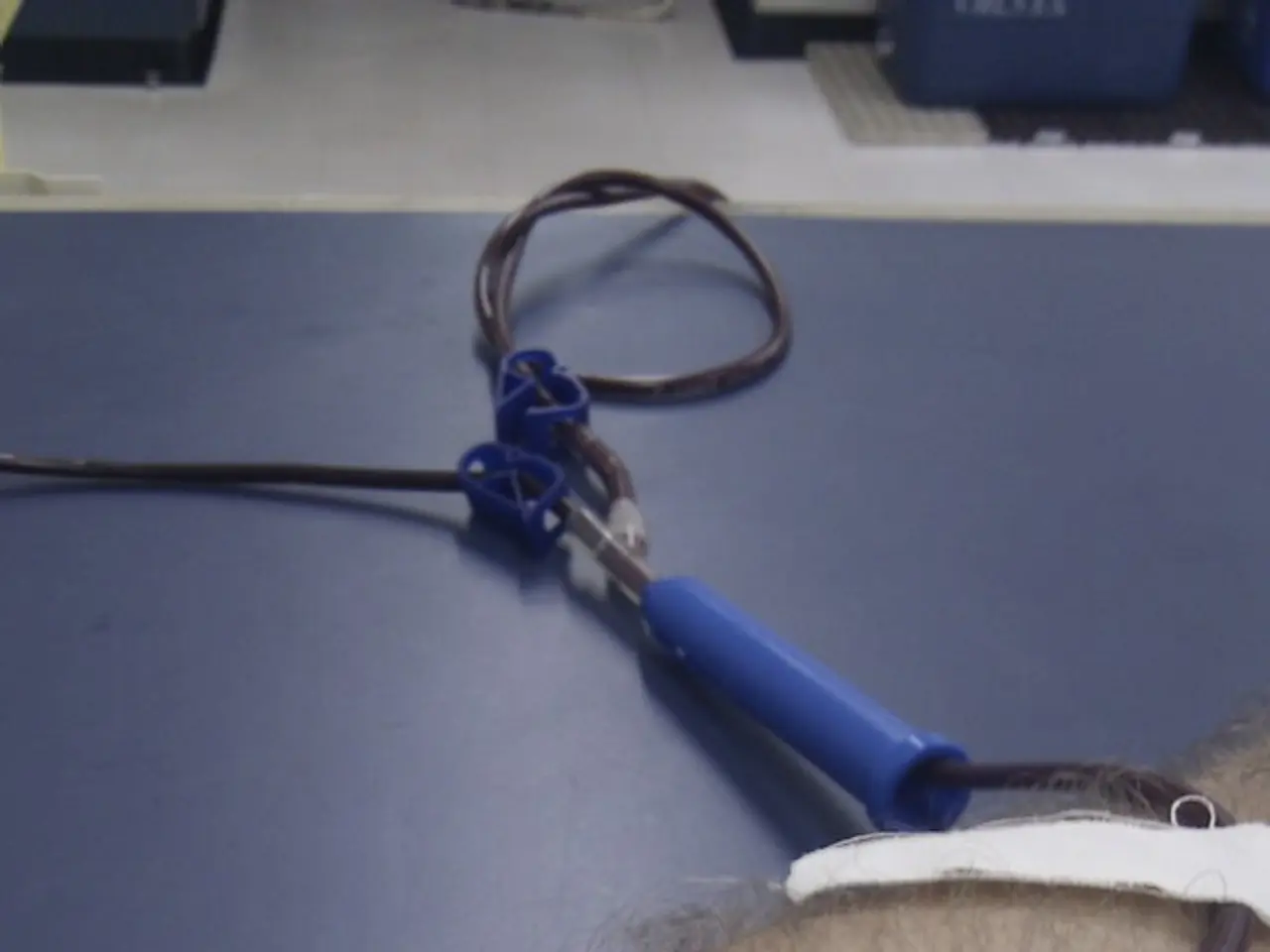Identifying Signs and Consequences of Varicose Veins
Varicose Veins and Deep Vein Thrombosis: Potential Health Risks
Varicose veins and deep vein thrombosis (DVT) are common conditions that can have serious consequences if left untreated.
Varicose Veins
Varicose veins, those bulging, twisted clusters of blue or purple veins that often appear in the legs and feet, are more than just a cosmetic concern. While some individuals may not experience any symptoms, others may suffer from pain, discomfort, and swelling.
These veins can contribute to chronic venous insufficiency (CVI), a condition where damaged vein valves cause blood pooling and increased pressure in the legs. CVI can lead to a variety of health issues, including skin changes such as discoloration, itching, dryness, and more severe problems like leg ulcers—open, slow-healing sores. Poor circulation due to varicose veins may also cause muscle fatigue, joint stiffness, and general heaviness or aching in the legs.
Deep Vein Thrombosis (DVT)
DVT refers to blood clots forming in the deep veins, often in the legs. A primary risk is that a clot can break loose and travel to the lungs, causing a pulmonary embolism (PE), a potentially life-threatening blockage of blood flow to the lungs. DVT can also lead to post-thrombotic syndrome, a form of CVI where scar tissue from the clot damages vein valves, causing chronic leg swelling, pain, and ulcers. Increased strain on the cardiovascular system may also occur, as the heart works harder to maintain circulation in the presence of venous dysfunction.
Key Health Risks Associated with Untreated Varicose Veins and DVT
| Condition | Main Health Risks | |-------------------|-------------------------------------------------------------------| | Varicose veins | Pain, swelling, CVI, skin changes, leg ulcers, muscle fatigue | | Chronic Venous Insufficiency (secondary to varicose veins) | Skin ulcers, heaviness, aching, skin discoloration, increased cardiovascular stress | | Deep Vein Thrombosis | Pulmonary embolism (life-threatening), post-thrombotic syndrome (chronic vein damage and symptoms) |
Early recognition and treatment are important to prevent these complications. If you notice symptoms such as persistent swelling, pain, skin discoloration, or ulcers on your legs, medical evaluation is recommended to avoid severe outcomes.
Risk factors for varicose veins include family history, obesity, jobs requiring a lot of standing, pregnancy, birth control pill use, and hormone replacement therapy. It's crucial to be aware of these risks and seek medical advice if concerned.
If you have varicose veins and continue having bothersome symptoms, it's a good idea to make an appointment with a vascular specialist to discuss low-risk procedures that can help relieve varicose veins. By taking action early, you can reduce the risk of developing more serious health issues.
- The history of medical-conditions like varicose veins and deep vein thrombosis (DVT) reveal that they are not just aesthetic concerns but can lead to chronic diseases.
- Despite travel being exciting, it's important to be aware of the potential health risks, such as deep vein thrombosis, that can occur due to long periods of sitting.
- Mental health can also be affected by skin-care issues, such as varicose veins or poor nutrition, as they can lead to a decrease in self-confidence and overall well-being.
- In the realm of science and fitness-and-exercise, maintaining a balanced diet and regular physical activity can help prevent or manage various health-and-wellness issues, including chronic diseases like varicose veins and DVT.
- To ensure good mental health and address skin-care concerns related to varicose veins, addressing underlying medical-conditions through proper medical care and addressing nutrition can be crucial steps in the journey towards maintaining overall health.




